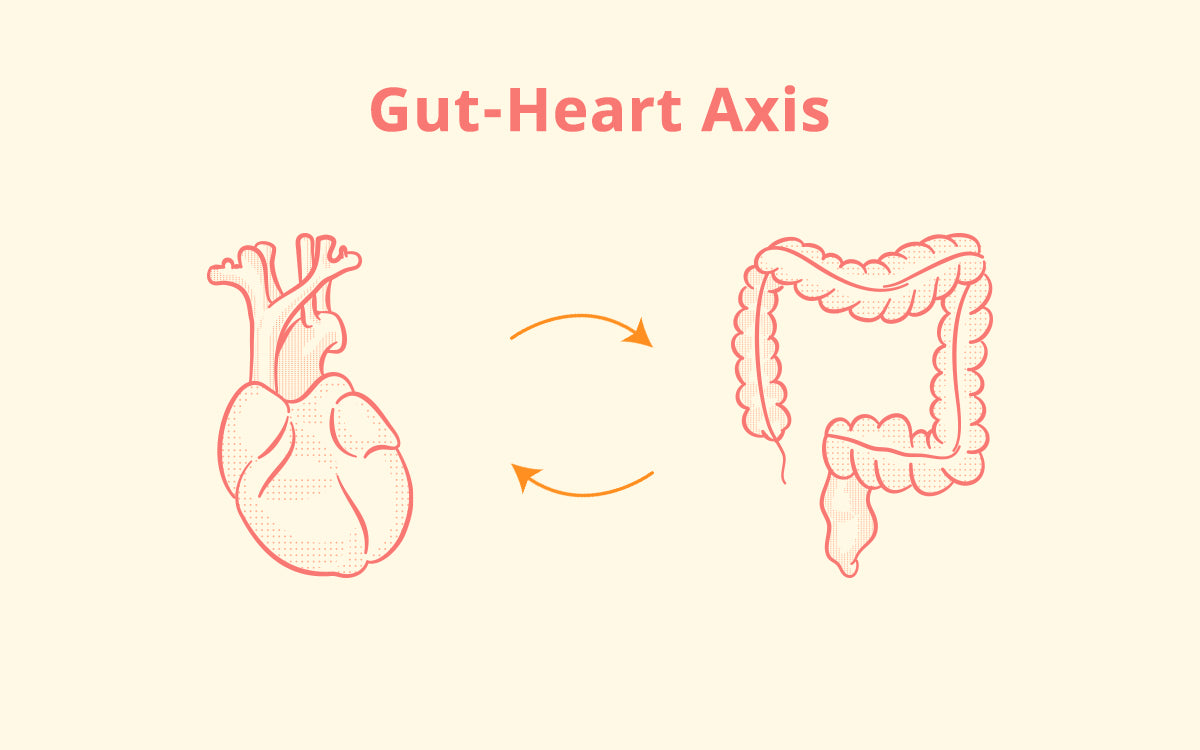
What Is the Gut-Heart Axis and Why Does It Matter?
When you think about heart health, gut health probably isn’t the first thing that comes to mind. But researchers are learning that the two are connected more than we once believed. This connection is called the gut-heart axis.
Your digestive system and heart may communicate through signals from your gut microbes, tiny organisms that live in your digestive tract. Let’s explore what this means, and how everyday habits may help support both systems.
What is the gut-heart axis?
The gut-heart axis refers to the relationship between the gut microbiome and cardiovascular health. The gut microbiome is made up of bacteria and other microorganisms that live in your intestines. These microbes help break down food and create byproducts, some helpful, some less so.
The balance of these byproducts may play a role in how the body manages certain functions, including those related to the heart and circulation.
How are the gut and heart connected through the microbiome?
As your gut microbes process food, they produce a variety of compounds. Some of these compounds travel through the bloodstream and may influence other parts of the body—including the heart.
The types of bacteria in your gut, and the foods you eat, can influence what these compounds are. That’s why scientists are interested in how changes in the gut might impact overall cardiovascular function.
Can changes in the gut affect the heart?
Research suggests that certain byproducts made by gut microbes may have a connection to how the body manages its internal systems, including blood flow and cholesterol levels.
For example, a compound called TMAO (trimethylamine N-oxide) is made from certain foods and has been studied for its possible relationship with cardiovascular conditions. On the other hand, beneficial compounds like short-chain fatty acids (SCFAs) are created when gut bacteria digest fiber.
The overall balance between these different substances may play a role in maintaining overall wellness.
What are TMAO and short-chain fatty acids (SCFAs)?
- TMAO: Formed when gut microbes process nutrients like choline and carnitine, commonly found in red meat and eggs. It is an area of active study in cardiovascular research.
- SCFAs (like butyrate, acetate, and propionate): Made when microbes break down fiber. These compounds are associated with digestive health and may support comfortable function in various systems of the body.
The balance between these byproducts depends on what you eat and the types of bacteria in your gut.
How do food and lifestyle choices influence the gut-heart connection?
Everyday choices like what you eat, how you move, and how consistently you rest may influence the composition of your gut microbiome. Over time, these patterns may also affect how your body feels and functions.
Some general habits that support a balanced routine include:
- Eating a variety of plant-based foods
- Including more fiber rich meals (beans, fruits, whole grains)
- Getting regular physical activity
- Staying well hydrated
- Being consistent with sleep and meal timing
These habits are helpful for supporting gut balance and may help you feel your best overall.
Which probiotics and fibers support gut balance?
Some probiotics and prebiotic fibers have been studied for their role in supporting a healthy gut microbiome.
- Probiotic strains such as Bifidobacterium lactis, Lactobacillus acidophilus, and Clostridium butyricum are often used in daily supplements.
- Prebiotic fibers like inulin, resistant starch, and partially hydrolyzed guar gum (PHGG) serve as food for beneficial bacteria already in the gut.
When paired together, these may help maintain a more balanced environment in the digestive system.
Final Thoughts
The gut and heart may seem like separate parts of the body, but they are connected in more ways than you might expect. Simple daily choices like eating more fiber, choosing diverse foods, and supporting your gut bacteria may help you feel more in balance.